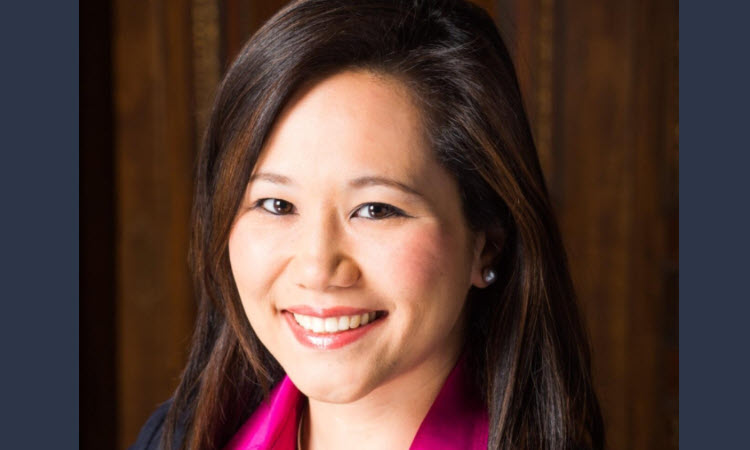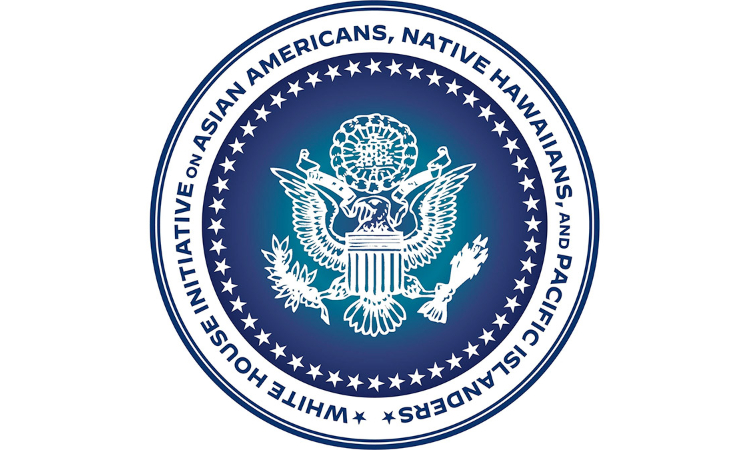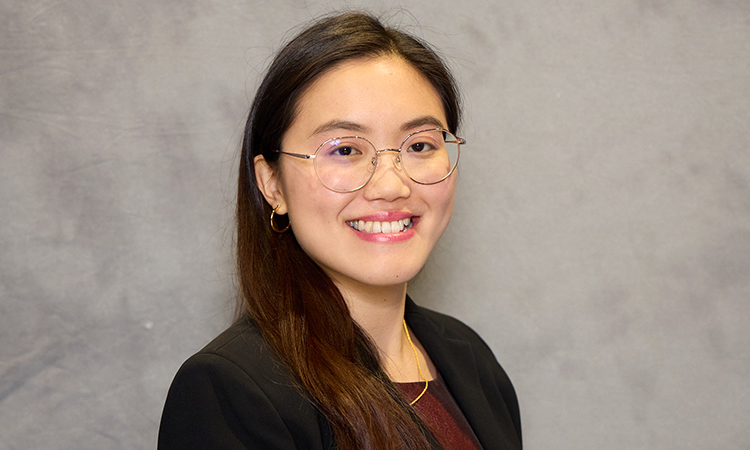Even though Kimberly Chang, MD, MPH, dedicated her medical practice to caring for underserved patients from the outset, she couldn’t have foreseen the impact that a 15-year-old female patient, who came into the clinic on the brink of death due to severe injuries and illness, would have on her career path. The patient, despite her dire condition, refused to be admitted to a hospital for fear of being arrested on an outstanding warrant, and left without being adequately treated. Dr. Chang feared the girl would die; later, after tracking the patient down, Dr. Chang learned she was a victim of sex trafficking.
Today, Dr. Chang is a leading voice on issues of social justice and health equity for underserved Asian American, Native Hawaiian, and Pacific Islander (AANHPI) communities and has focused much of her 20-plus-year career on people vulnerable to human trafficking and exploitation, caring for sexually exploited children and adults, and helping to develop national clinical and health policy recommendations and trainings on these issues. Dr. Chang serves as a Family Physician at Asian Health Services (AHS), a Federally Qualified Health Center (FQHC) in Oakland, California. In 2021, she was appointed to the President’s Advisory Commission on Asian Americans, Native Hawaiians, and Pacific Islanders within the U.S. Department of Health and Human Services, a 25-member body that advises President Joe Biden on public, private, and non-profit sector strategies to advance equity, justice, and opportunity for AANHPI communities.
As part of the KPSOM Speaker Series and in celebration of Asian Pacific American Heritage Month, Dr. Chang recently gave a talk titled, “From the Community to the White House: A Conversation with a Physician Advocate.” She also granted a brief interview to discuss her work at both the clinical and policy level. The following is edited for clarity and length.
How did working as a physician in a federally qualified health center, and treating underserved patients, lead to your involvement in issues related to human trafficking and exploitation?
Basically it's because of the patients that I saw. It’s not that I had predetermined that I was going to go into specializing in human trafficking and exploitation. It's more that I was seeing patients who were coming in for issues that were related to or because of their exploitation or their sex trafficking, if you will. And so just responding to the patient who's in front of you, who's in front of me and really trying to address the conditions creating vulnerabilities for them to be exploited or trafficked.
Community Health Centers, or Federally Qualified Health Centers, are basically designed and, by mandate, have to see people who are medically underserved. So that could be defined by racial ethnic definitions or categories, that could be defined through language access issues like limited English proficiency, that could be defined through poverty status, that could be defined through insurance or underinsurance or being underinsured. At Asian Health Services, our specialty is Asian languages and cultures. Most of our patients don't speak English, they're new immigrants or refugees, they're impoverished, they don't have a whole lot of access, they're publicly insured or uninsured, they might have differential class statuses of immigration status, some are undocumented, some are on asylum or refugee status. There's a lot of social circumstances that create vulnerabilities for them to be hidden, marginalized, or not have access to resources. This lack of access to resources is really across the board, whether you're Asian, Black, White, Latino, Indigenous; the lack of resources creates vulnerabilities to be exploited.
Why did you choose a career path with vulnerable populations as opposed to a more traditional practice?
I’ve always been drawn to where there’s more need. My residency was done at San Francisco General Hospital, which is a county hospital serving the same type of population. The focus and the mission at the time for that residency program was to prepare family physicians to take care of underserved populations. When I came out of residency, I actually did some work at Kaiser [Permanente] as an Asian care doc. I worked at a couple of private practices, and I worked at Asian health services, all trying out different settings. But it became clear to me very quickly that if I was going to do medicine and see patients, I wanted to see the patients who needed me the most. And then it wasn’t just solely about medical issues, but really struggling to tackle some of those community and social issues.




